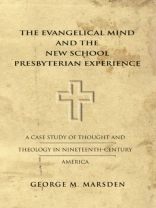The passing of reformed theology as a major influence in American life during the nineteenth century was not a spectacular event, and its mourners have been relatively few. Calvinism, when it is mentioned, is still often portrayed as a dark cloud that hovered too long over America, acting as an unhealthy influence on the climate of opinion. Nonetheless, the transition from the theologically oriented and well-formed Calvinism characteristic of much of American Protestantism at the beginning of the nineteenth century to the nontheologically oriented and often poorly informed conservative Protestantism firmly established in middle-class America by the end of the same century remains a remarkable aspect of American intellectual and ecclesiastical history. The twentieth-century attitude, itself a product of this transition, has placed strong emphasis on nineteenth-century Protestant activities – their organizations, their revivals, and their reforms. The mind of American Protestantism in these transitional years deserves at least equal consideration.
-from the Introduction
Sobre o autor
George Marsden is Francis A. Mc Ananey Professor of History at the University of Notre Dame. His other publications include Jonathan Edwards: A Life and Fundamentalism and American Culture: The Shaping of Twentieth-Century Evangelicalism.







![Capa do Brian Schrag & Julisa Rowe: Community Arts for God's Purposes [Chinese] 貼近神心意的社群藝術 Capa do Brian Schrag & Julisa Rowe: Community Arts for God's Purposes [Chinese] 貼近神心意的社群藝術](https://static.worldofdigitals.com/thumb_webp/740/9781645083740.webp)




